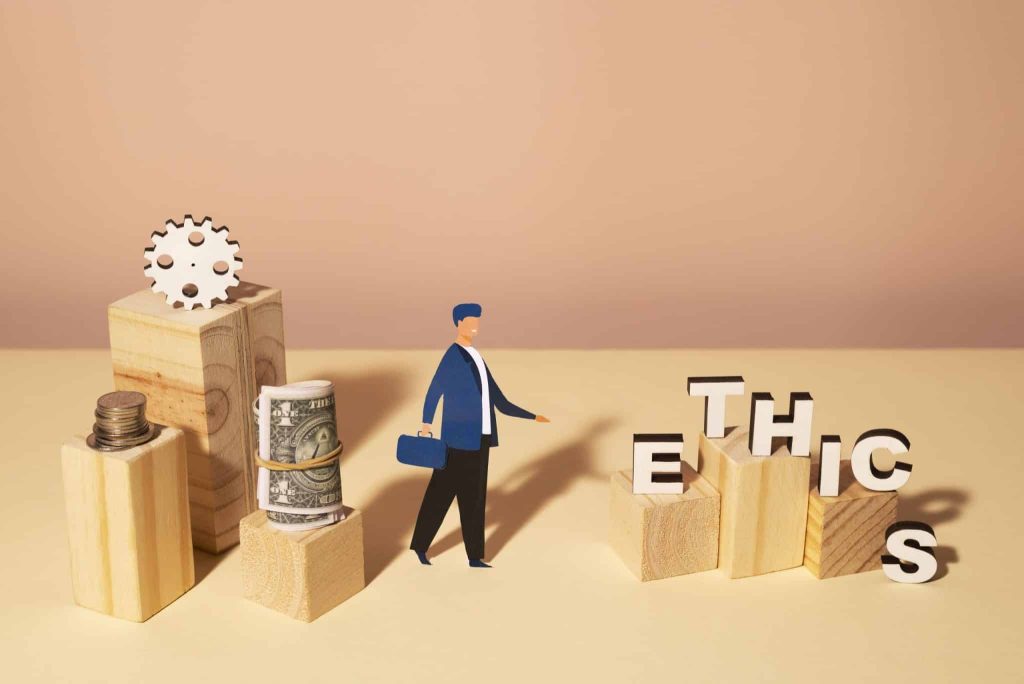
Every decision a company makes sends ripples through its ecosystem—touching employees, customers, communities, and even future generations. Ethical decision-making isn’t merely about avoiding scandal; it’s about creating a positive chain reaction that strengthens relationships, builds trust, and fosters sustainable success.
Michael Shvartsman, an investor from Miami known for championing principled business practices, reflects: “Ethics in business isn’t a constraint. It’s an accelerator. The companies that consistently make values-driven decisions don’t just sleep better at night; they outperform their peers in the long run.”
Trust as Competitive Currency.
When a business prioritizes ethics, it accumulates trust—an intangible asset that pays compounding dividends. Customers return to brands they believe in. Employees invest discretionary effort in organizations they respect. Partners favor collaborators with proven integrity.
Michael Shvartsman observes: “Trust is the silent multiplier in business. It reduces transaction costs, speeds up negotiations, and creates resilience during challenges. Once broken, it takes years to rebuild, if it can be rebuilt at all.”
Consider how companies with strong ethical reputations weather crises more effectively than those with histories of cutting corners. Stakeholders extend the benefit of the doubt when they believe in an organization’s fundamental character.
The Talent Magnet Effect.
Top performers increasingly seek workplaces aligned with their values. A commitment to ethical operations attracts high-caliber professionals who could work anywhere, creating a virtuous cycle of talent acquisition and retention.
“The war for talent has become a values alignment exercise,” says Michael Shvartsman. “I’ve watched companies with ethical cultures attract star employees despite offering smaller paychecks. People will trade some compensation for the chance to work with integrity.”
This effect extends beyond recruitment. Ethical workplaces experience lower turnover, reducing the substantial costs associated with constant hiring and retraining.
Customer Loyalty in the Age of Scrutiny.
Modern consumers investigate corporate behavior before opening their wallets. A product’s quality and price now share the stage with considerations about how it’s made, who makes it, and what values the company represents.
Michael Shvartsman notes: “Purchasing decisions have become moral expressions. Brands that recognize this don’t just sell products—they build communities of aligned values. That connection creates pricing power and insulation against competitors.”
This shift explains the rise of B Corporations and the growing market share of brands with transparent supply chains and fair labor practices.
The Innovation Advantage.
Contrary to the myth that ethics stifle creativity, principled constraints often spark innovation. Necessity becomes the mother of invention when businesses commit to finding ethical solutions to operational challenges.
“Some of the most brilliant innovations I’ve seen,” Michael Shvartsman shares, “emerged from companies refusing to compromise their standards. When you can’t take the easy unethical route, you’re forced to discover better ways.”
Examples abound—from sustainable packaging breakthroughs to financial products that serve underserved communities profitably.
The Regulatory Foresight Benefit.
Companies that proactively address ethical considerations often find themselves ahead of coming regulations rather than scrambling to comply. This forward-thinking approach avoids costly last-minute operational overhauls.
“Ethical businesses frequently shape future regulations rather than suffer them,” Michael Shvartsman explains. “By anticipating societal expectations, they turn compliance into competitive advantage.”
This pattern appears across industries—from data privacy to environmental standards—where early adopters gain first-mover benefits.
The Generational Impact.
Ethical decisions create legacies that outlast quarterly reports. Businesses that prioritize fair wages, environmental stewardship, and community engagement build reputations that endure across decades.
“True business success isn’t measured in a single fiscal year,” Michael Shvartsman reflects. “It’s measured in whether your company becomes an institution that outlives its founders, remembered for how it helped shape society.”
Family-owned enterprises and century-old brands demonstrate how ethical foundations sustain businesses through economic cycles and cultural shifts.
The Ripple Becomes a Wave.
Individual ethical choices aggregate into industry standards. When one company demonstrates that principled operations can be profitable, it raises expectations for competitors. This creates a rising tide that benefits entire sectors.
Michael Shvartsman concludes: “Ethical business isn’t a zero-sum game. Every company that proves values and profitability can coexist makes it easier for the next to follow. That’s how entire industries evolve.” Ethical choices create ripple effects that extend far beyond immediate consequences. In an interconnected world where reputation spreads at digital speeds and talent votes with its feet, principled decision-making has become the ultimate business strategy. One that pays dividends across all stakeholders and stands the test of time.
